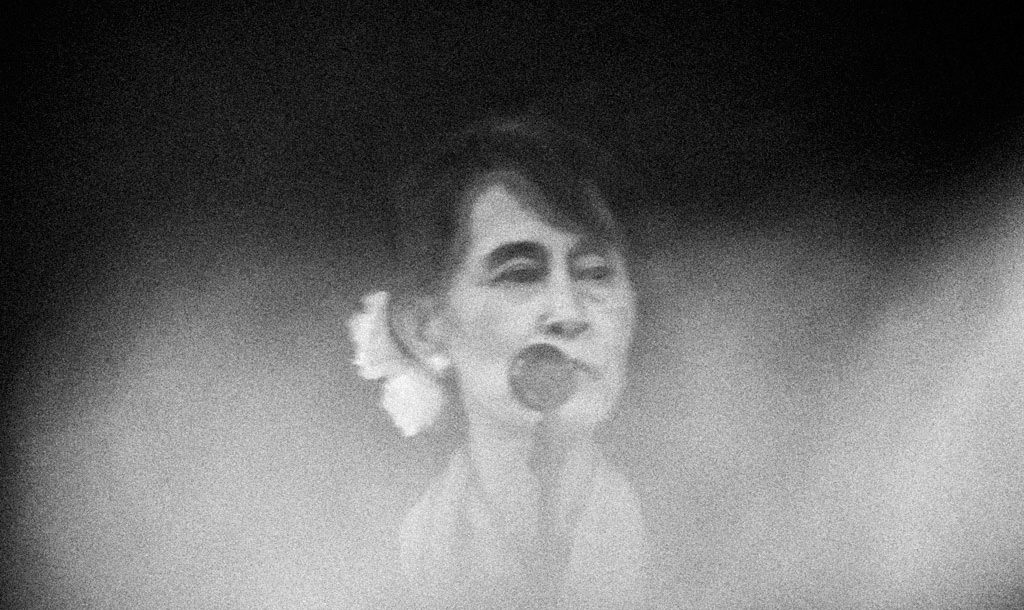Oxford University’s Matthew Walton tempers excitement about political change in Myanmar under Aung San Suu Kyi’s NLD, reports Amy Doffegnies.
While Myanmar’s entry into an era of NLD-led government in 2016 was a cause for immense hope, Oxford University’s Dr Matthew Walton paints a more sobering scene — pointing to major issues that continue to plague the country.
Dr Walton was speaking about key political developments in the country at the 2017 Myanmar Update, hosted by the Australian National University on 17-18 February.
As Dr Walton highlighted, the situation on the ground has deteriorated for many Myanmar people as war continues in Kachin and Shan states. Worsening the crisis of 98, 000 internally displaced people in these states alone is the fact that this “human suffering gets ignored” Walton said. Describing the on-going Peace Process as “elite driven” and insufficiently inclusive, little optimism was expressed for March’s Panglong Conference.
The events of October 2016 in Rakhine state — attacks on Myanmar border police by alleged Islamic militants — and the heavy-handed military retaliation on entire Rohingya communities are also extremely concerning. As a result of this collective retribution by the Myanmar army, tens upon tens of thousands have fled the country, prompting criticism from Myanmar’s ASEAN neighbours and beyond. Dr Walton pressed the need for scholars and journalists to continue to call upon the government for restraint and the unrestricted flow of aid to affected communities in dire need.
Meanwhile, the broader problem of anti-Muslim sentiment and hate speech, as well as everyday discrimination suffered by religious minorities has received limited attention from the NLD government, Dr Walton stressed.
Conversely, Dr Walton pointed to progress in the growing strength of community activism in Myanmar, with land disputes being the issue animating the most action. The wealth of energy among community organisations was set in contrast with MPs in power, whose chances for lively debate in parliament have been hindered by centralised party leadership. If progress is to be made and Myanmar’s multiple issues addressed, NLD governance must move beyond a “one woman show” said Dr Walton.
In order to move forward in consolidating the country’s transition to democracy, Dr Walton concluded by calling for the NLD government to “embrace the power and skill of all of its citizens who have been waiting for this opportunity for decades and are ready to start.”
During the conference’s political update session, Professor Maung Aung Myoe of the International University of Japan shed light on the all-important topic of relations and power sharing between the NLD government and the military.
Despite the party’s strong mandate and legitimacy, it was argued that a cautious NLD has instigated little major change in the country’s political structure “with no visible signs of transforming civil-military relations”.
Since the NLD took office in February 2016, the military’s intention to retain their influence, especially in national security matters was clear. This was signalled in the military’s release of their first Defence White Paper the same month the elected government entered parliament, Maung Aung Myoe noted.
While there is friction between the two sides, overall the military has a reasonable working relationship with the NLD government, Maung Aung Myoe noted, “with the NLD quite willing to work with the military.”
In dealing with the crucial issue of the Peace Process, it was noted that there has been “little change in form and substance of the negotiation process.” In this regard, the NLD seem to be following in the footsteps of the previous government, “taking the Tatmadaw’s position as its own policy”.
The NLD has made some moves to minimise the military’s involvement in the policy process, observed Maung Aung Myoe. However, the session concluded on the note that the influence of the military, evident in its’ shaping of foreign relations and the Peace Process, seems set to remain entrenched.
Amy Doffegnies is a PhD scholar at UNSW Canberra researching the relationship between Buddhism and human rights in Myanmar. She also has strong interests in issues of freedom of expression, censorship and writers in Myanmar.
Listen to the political update from the 2017 Myanmar Update here or in the player above.
 Facebook
Facebook  Twitter
Twitter  Soundcloud
Soundcloud  Youtube
Youtube  Rss
Rss 